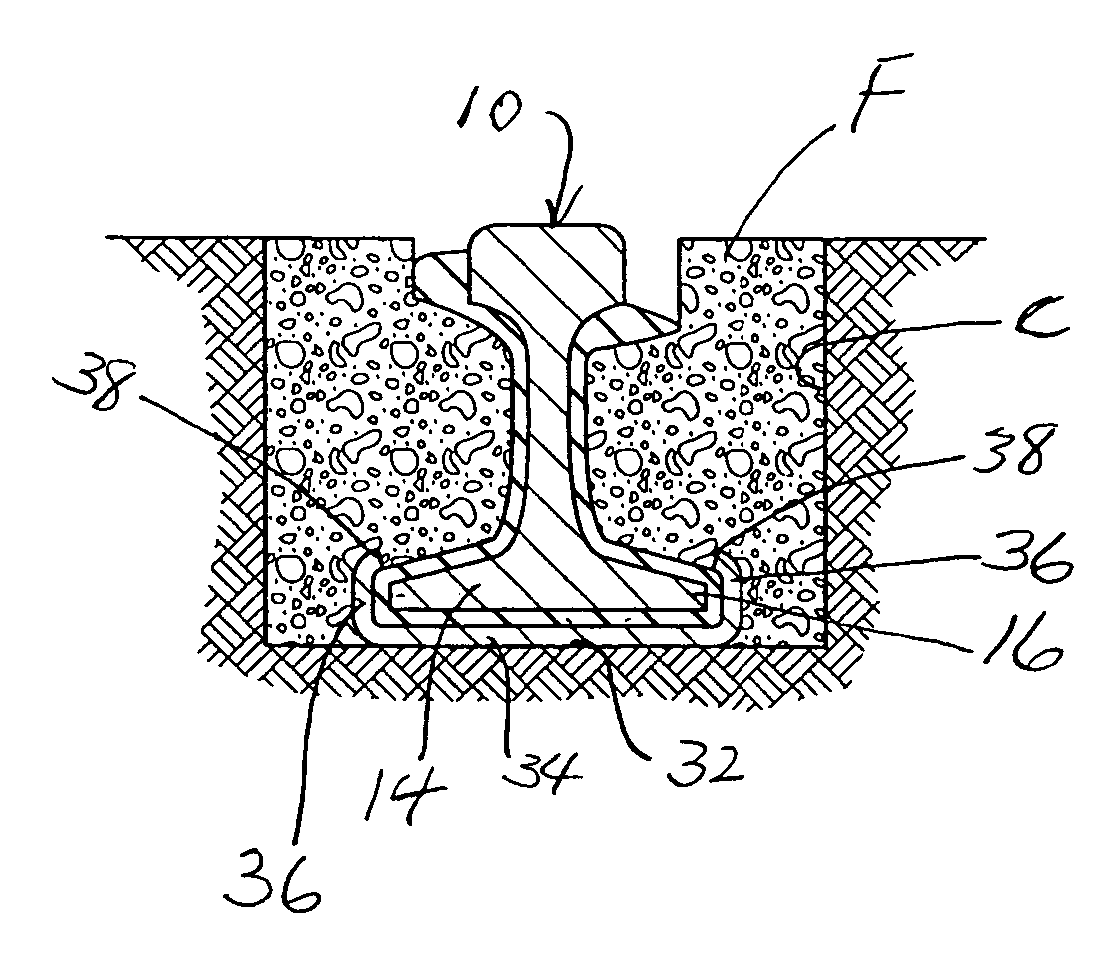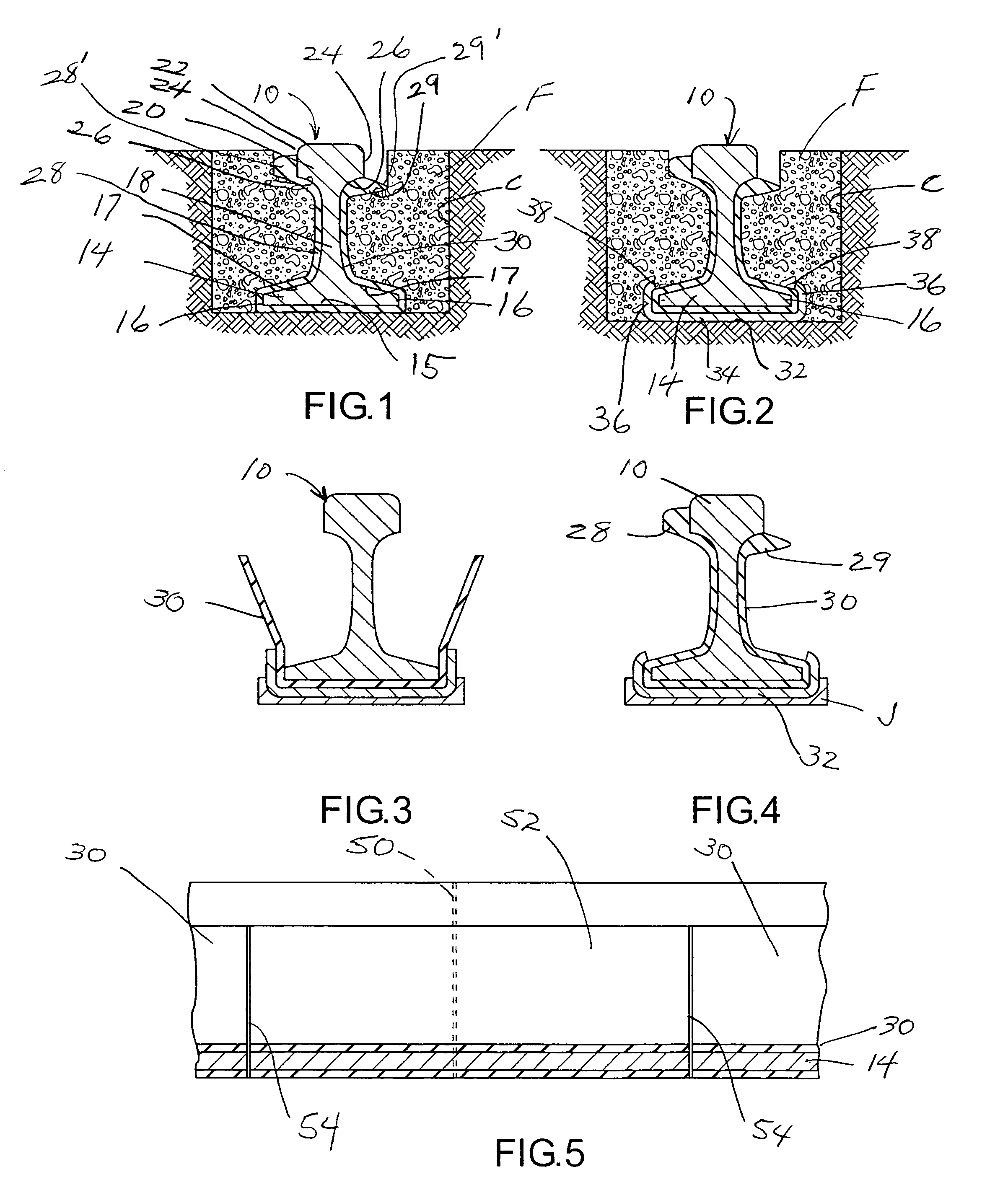Insulated rail for electric transit systems and method of making same
a technology for electric transit and rail systems, applied in the field of railway systems, can solve the problems of unsatisfactory approach and insufficient vibration and sound insulation of rail systems of the type described, and achieve the effect of reducing the risk of stray corrosion, and greatly simplifying the installation
- Summary
- Abstract
- Description
- Claims
- Application Information
AI Technical Summary
Benefits of technology
Problems solved by technology
Method used
Image
Examples
Embodiment Construction
[0017]Referring in more detail to the drawings, FIG. 1 illustrates a composite rail, which is made up of a standard rail 10 and a rail cover 12. The rail 10 is of generally I-shaped cross-sectional configuration having a bottom flange 14 provided with a flat undersurface 15 and opposite sides 16 together with sloped upper surfaces 17 which merge into a vertical web portion 18. A top flange 20 has a slightly convex top surface 22 and opposite sides 24 together with sloped undersurfaces 26 which merge into the upper end of the vertical web portion 18. In accordance with conventional practice, the rail may be composed of various grades of steel or aluminum depending upon load requirements. As a setting for the one embodiment, the rail is composed of steel and is designed with a relatively broad base flange 14 in comparison to the width of the top flange 20.
[0018]In the one embodiment, the rail is adapted for use as a railroad track for the prevention of corrosion due to stray current l...
PUM
 Login to View More
Login to View More Abstract
Description
Claims
Application Information
 Login to View More
Login to View More - R&D
- Intellectual Property
- Life Sciences
- Materials
- Tech Scout
- Unparalleled Data Quality
- Higher Quality Content
- 60% Fewer Hallucinations
Browse by: Latest US Patents, China's latest patents, Technical Efficacy Thesaurus, Application Domain, Technology Topic, Popular Technical Reports.
© 2025 PatSnap. All rights reserved.Legal|Privacy policy|Modern Slavery Act Transparency Statement|Sitemap|About US| Contact US: help@patsnap.com


